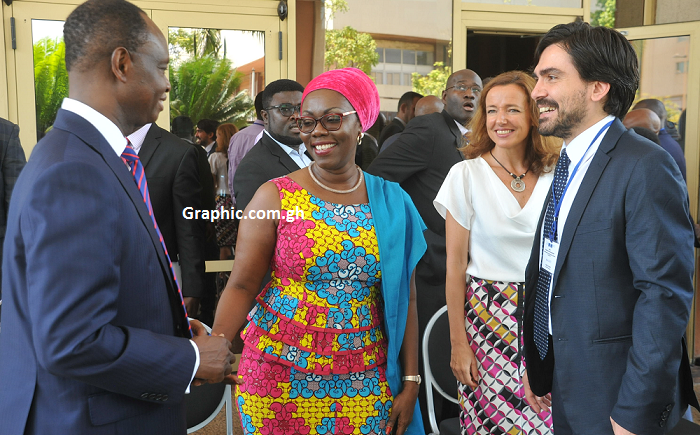
Ghana to set up national cyber security council
Ghana is to establish a national cyber security council to tackle the increasing rate of cyber crime in the country. The initiative is part of the government’s effort to build a comprehensive cyber security governance arrangement involving all key public and private sector stakeholders.
The National Cyber Security Council will be an independent advisory body made up of public and private parties who will give advice on their own initiative and on request to the Cabinet on digital security.
Cyber crime takes the form of computer-related fraud, popularly known as ‘sakawa’ in Ghana, mobile money transfer fraud, cyber bank heists, child phonography, breaches and violation of computer network security, identification theft, industrial espionage, election rigging, among others.
The Minister of Communications, Mrs Ursula Owusu-Ekuful, disclosed the government’s plan when she addressed the opening of a three-day international workshop on criminal justice statistics on cyber crime and electronic evidence in Accra yesterday.
The workshop is being hosted by the National Communications Authority (NCA), in collaboration with the Council of Europe and the European Union, under the auspices of the Global Action on Cybercrime Extended Project, also konwn as GLACY+.
The participants are cyber crime experts from the Dominican Republic, The Philippines, Morocco, Mauritius, Belgium and Romania.
Infrastructure
Mrs Owusu-Ekuful said a cyber security centre would also be set up to receive cyber security incident reports.
Additionally, she said, the centre would have a forensic laboratory to support investigations and the prosecution of cyber crime perpetrators.
Currently, she said, the legal framework which empowered law enforcement agencies to prosecute cyber criminals and implement the right cyber defences by other relevant institutions were in place.
She enumerated the existing legal framework as including the Electronic Communications Act, 2008 (act 775), the Electronic Transactions Act, 2008 (Act 771) and the Data Protection Act, 2012 (Act 843).
“Cyberspace is real, and so are the risks that come with it. The technologies that empower us to efficiently and effectively disseminate information and communicate to improve the livelihood of humankind also empower the criminals who disrupt and destroy,” the minister said.
She called for sectoral collaboration and information sharing by all stakeholders, adding: “It is only by working together that we can make meaningful progress and fight this menace. The era of working in silos is over.”
Global fight
Mrs Owusu-Ekuful stated that since cyber crime was borderless and posed real challenges to all countries, it was important for all users of cyberspace to join hands in fighting the canker.
For its part, she said, the Ministry of Communications would work with the Ministry of Justice and Attorney-General to engage Parliament to ratify the Budapest Convention to facilitate the successful prosecution of cross-border ICT crimes.
The Budapest Convention is a global arrangement which prioritises a common criminal policy aimed at protecting countries against cyber crime by adopting appropriate legislation and fostering international cooperation.
Challenges
In a welcome address, the Director-General of the NCA, Mr Joe Anokye, said the challenges of winning the fight against cyber crime included the absence of reporting systems in many countries.
In Ghana, he said, the law enforcement agencies and the Judiciary had different ways of recording and reporting cyber crime and its electronic evidence, while there was a lack of standardised definition of terminologies, such as cyber-enabled crime and cyber-dependent crime.
Mr Anokye said the capacity gap with regard to cyber crime and poor and inadequate reporting mechanisms greatly hindered cyber security efforts.
By the end of January 2017, he said, the total subscription of mobile data in Ghana was 20,064,111, with a penetration rate of 70.90 per cent, which meant that more people had access to data which could lead to an increase in cybercrime.
The Project Manager of the Council of Europe, Mr Matteo Lucchetti, said the GLACY+ provided support for countries worldwide in the implementation of the convention on cyber crime, usually refered to as the Budapest Convention.
The project, he explained, would strengthen the capacity of states worldwide to apply legislation on cybercrime and electronic evidence and enhance their abilities for effective international cooperation.
In a remark, the Head of Operations, Governance and Society, the EU Delegation to Ghana, Ms Maria Luisa Troncoso, said cyber crime emerged about five years ago and was, therefore, categorised as one of the new crimes.
